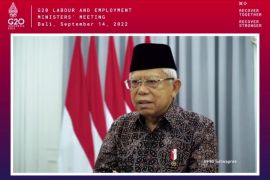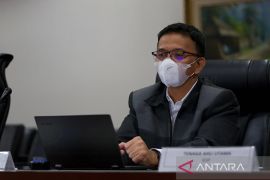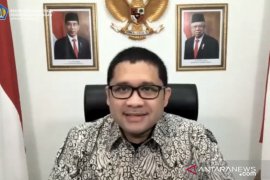"The Declaration of the Ministers of Labor of the G20 countries has become an essential input for the leaders of these countries," Hanif said here in a statement on Monday.
The meeting of the Ministers of Labor will come up with a G20 Labor and Employment Ministerial Declaration which will include efforts to encourage the creation of adequate employment opportunities, increase employment and offer decent work.
In addition, added Hanif, the meeting will discuss a collective agreement to conceive employment and macroeconomic policies that support the efforts to absorb the workforce in the labor market, the efforts of the G20 to improve the quality of apprenticeship and the principle of having a sustainable, rational and coherent wage policy.
The meeting will also discuss joint efforts to manage economic growth strategies and a planned workforce that will benefit the employment sector in respective countries.
"The labor ministers agreed that economic growth must be accompanied by an expansion of employment opportunities so that the gains can be enjoyed by the public, workers and employers. Therefore, any growth has to be inclusive," Hanif stressed.
To realize such objectives, there is need for intensive cooperation with other agencies, especially the Ministry of Finance.
"Economic growth must create better jobs, push efforts for enhanced participation of labor force, help tackle unemployment and boost the participation of women and youth in work," argued Hanif.
Hanif expected that the results of the meeting will be implemented in Indonesia.
LEMM G20 meeting, which woukd be opened by the Minister of Human Resources and Social Welfare of China, Yin Weimin, would be attended by the Ministers of Labor of members of the G20 and officials of the ILO, the OECD, the World Bank and the IMF.
Discussions will be held with other stakeholders, including a group of trade unions, employers, civil society organizations, and groups of young workers from member countries of the G20.
The G20 includes South Africa, the United States, Saudi Arabia, Argentina, Australia, Brazil, the United Kingdom, China, India, Indonesia, Italy, Japan, Germany, Canada, South Korea, Mexico, France, Russia, Turkey and the EU.(*)
Editor: Heru Purwanto
Copyright © ANTARA 2016











